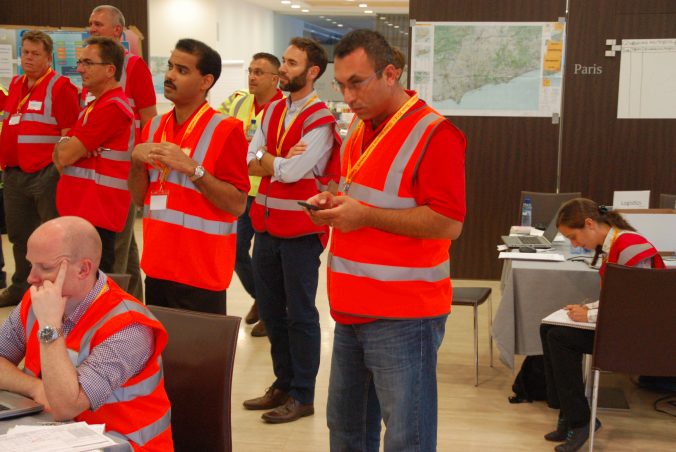
Sea Alarm exercises oiled wildlife response with Shell in Spain
In September, Sea Alarm was invited to participate in a major table-top oil spill exercise in Tarragona, Spain organized by Shell. The exercise, named Medspan, involved 120 members of Shell’s Oil Spill Expertise Centre (OSEC) as well as personnel from Oil Spill Response Limited (OSRL), Spill Consult, International Tanker Owners Pollution Federation (ITOPF), and Sea Alarm.
The exercise simulated the first 3-days of an oil spill originating from a tanker collision several miles offshore of the Spanish port of Tarragona. Together with our partner Submon, Sea Alarm assisted OSRL and the organisers to develop a realistic wildlife component to the scripting of this scenario. During the exercise in Tarragona the Sea Alarm team helped to establish the ‘Wildlife Branch” and dealt with the planning and operational aspects of the simulated wildlife response.
The incident command system (ICS) was first used in the United States in the 1970’s and ever since has been developed to become a strong platform for multi-agency effectiveness. ICS (or an equivalent incident management system) is increasingly being adopted by the oil industry worldwide as a systematic and scalable way to organise and direct the response to oil spill emergencies of any size and complexity. Although ICS is often not used by governments in Europe, the Medspan exercise provided Shell staff with the opportunity to train together and test the generic elements of ICS within a realistic European context.
The event proved the value of including wildlife response issues in an exercise scenario. Too many times the emotive aspects of media reporting an oil spill in a sensitive area for marine fauna are overlooked in response planning and exercises. Oiled wildlife can quickly become a main topic in the media and on social media, requiring the incident management system to treat the issue as a priority, regardless of its relative importance.
Not only must reliable factual information be collected and shared publicly on a daily basis, but also evidence must be provided that an adequate response is underway providing professional protection and care to threatened animals. A lack of visibility on this point, where the public is clearly concerned, can easily damage the credibility and reputation of the incident response as a whole.
We hope that Shell’s laudable initiative will be followed by other companies and governmental agencies in future. Sea Alarm’s staff remains ready to advise or assist with the preparation of these events where and when needed.

